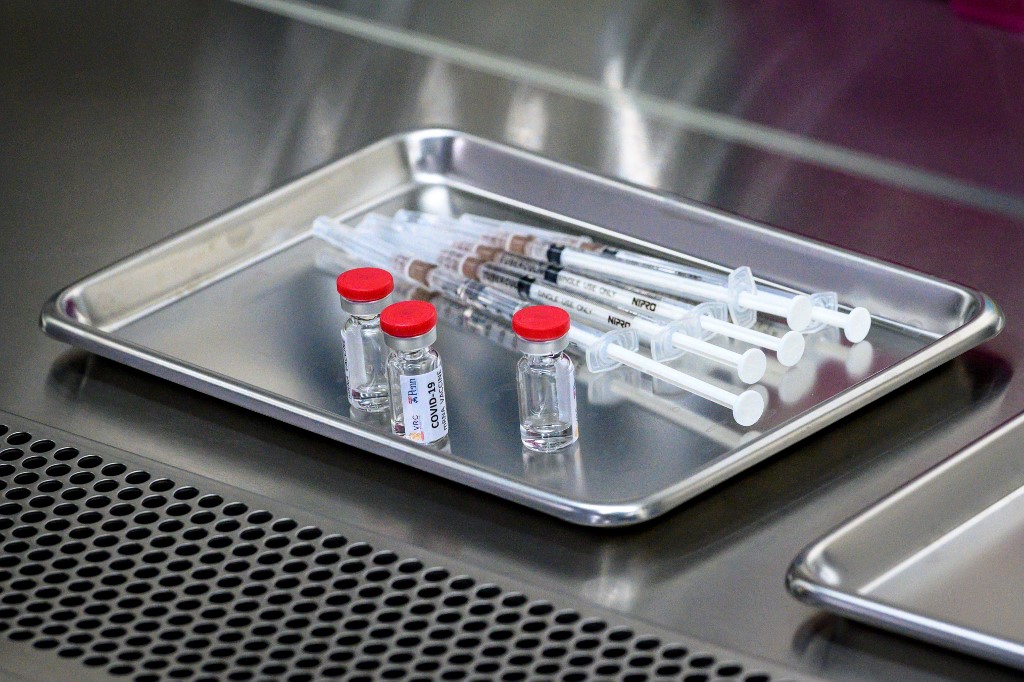
FILE – This picture taken on May 23, 2020 shows a tray with doses of a COVID-19 novel coronavirus vaccine candidate ready for trial on monkeys at the National Primate Research Center of Thailand at Chulalongkorn University in Saraburi. (Photo by Mladen ANTONOV / AFP)
A vaccine against COVID-19 developed by the US biotech firm Moderna will enter the third and final stage of its clinical trial in July with 30,000 participants, the firm said Thursday.
This stage allows scientists to observe, using a large healthy population, whether the vaccine is more effective than a placebo at preventing COVID-19 and also whether it can prevent infection with the coronavirus that causes the disease.
The framework for the study was approved by the Food and Drug Administration (FDA) and is being conducted in collaboration with the US National Institutes for Health (NIH).
Moderna’s vaccine effort is a global frontrunner, alongside a vaccine being developed by the University of Oxford with AstraZeneca, which has also launched a large scale trial on 10,000 volunteers and expects results by September.
Moderna has received $483 million in US government funding, and on May 18 announced its first results among eight participants from the first phase of testing, which were seen as encouraging.
If the dose amount chosen for the trials of 100 micrograms proves effective, Moderna expects to be able to make 500 million doses per year, or even up to a billion.
Moderna is one of five companies that the administration of President Donald Trump is betting on to deliver, under its “Warp Speed” push for a vaccine.
The others are the Oxford vaccine, Johnson & Johnson, Merck and Pfizer.
The goal is to produce 300 million vaccine doses by January 2021.
Moderna’s vaccine relies on implanting the genetic code of a portion of the virus inside the human body in order to elicit an immune response.
So-called messenger RNA vaccines have not been proven so far against any virus.